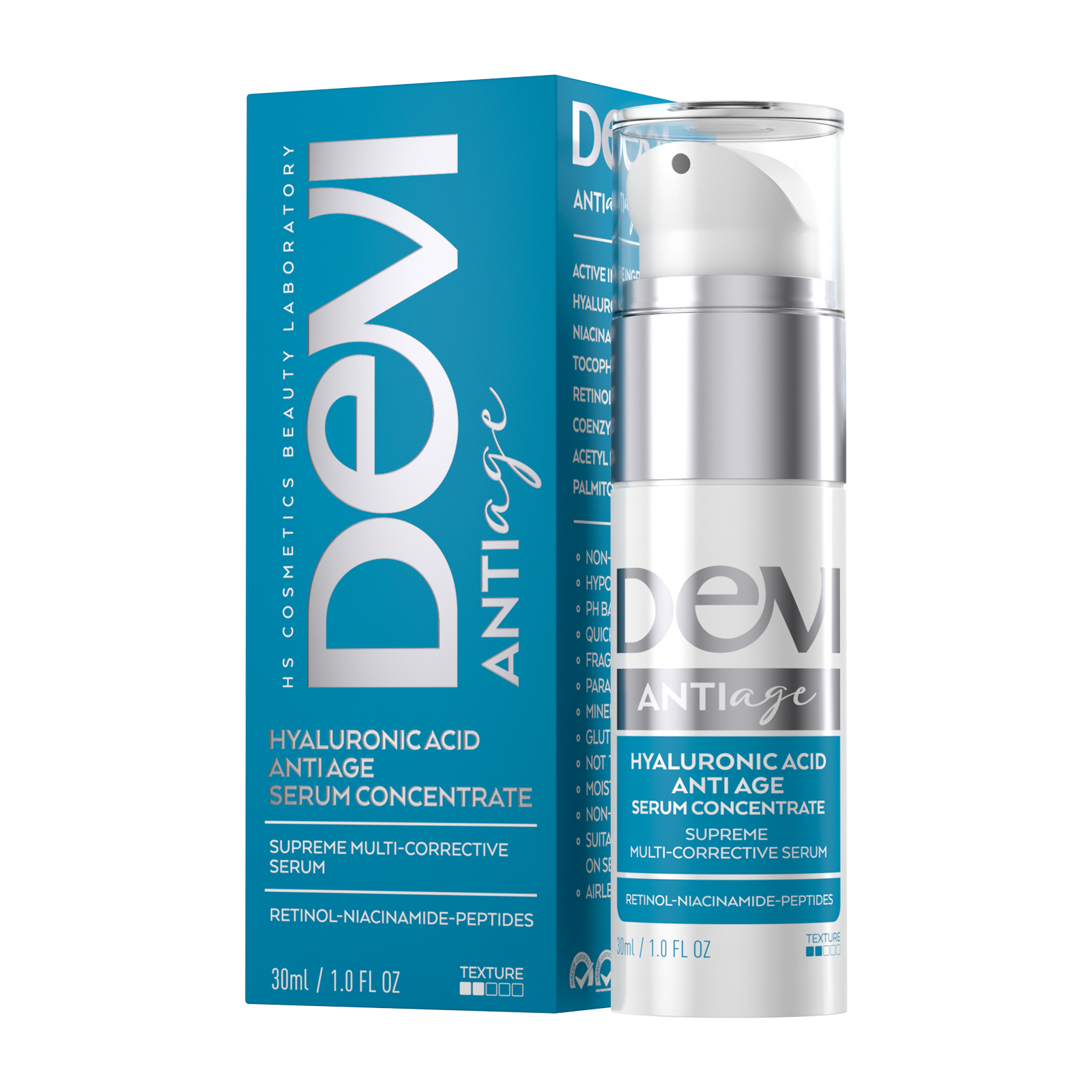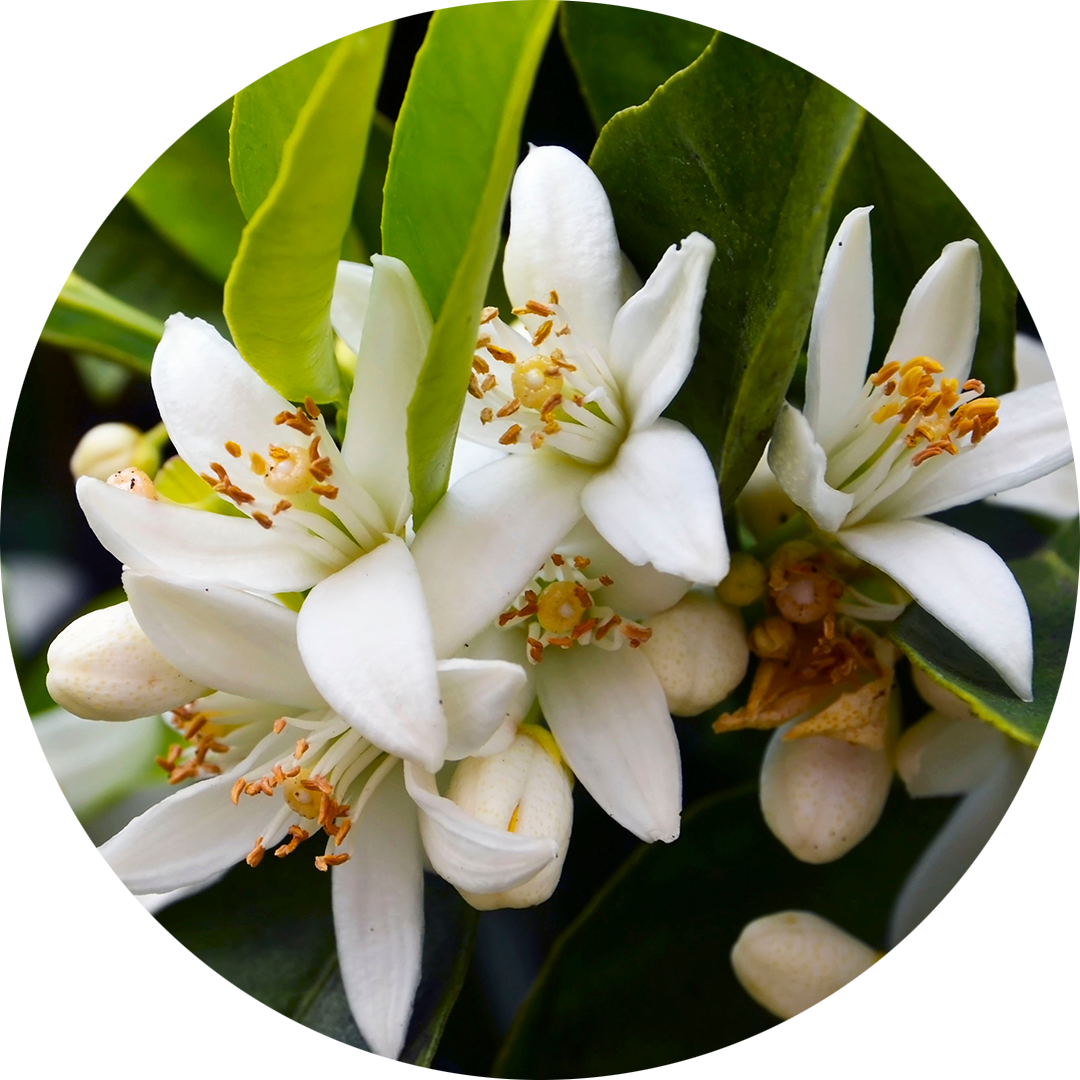(Citrus aurantium amara)
In 642 AD, Arabs brought the bitter orange tree to Egypt where the original type of this tree that has not been altered by cross-breeding still grows to this day. When the tree blooms, its flowers are harvested from mid-March to the end of April, in order to obtain from it an intoxicating essential oil whose fragrance is captivating, but which also has special beneficial properties. Much later, in 1675, Marie Anne de Tremoille married Duke Flavio Orsini of the Orsini family which had owned Nerola Castle near Rome since the 13th century. After the wedding, the newlyweds spent a short time in Nerola before leaving for Paris. It is said that, before leaving, the young duchess, now the princess of Nerola, enchanted by the intoxicating nature of the trees that grew around the castle, took an extract of its flower, in order to ask Parisian perfumers to make her a perfume. She used to perfume her gloves with it and add it to her baths, and thus brought it into fashion in a grand way. The aristocracy was delighted by the fragrance which contained the freshness of green fields, the sweetness of grapefruit and hints of lilies and meadow herbs. The bitter orange extract, Citrus aurantium amara, was named after her – neroli oil. The word neroli comes from nerio or nero in the extinct Sabine language, which means “strong” and “brave”. Strength is precisely the characteristic that adorns this oil.
Today, neroli oil is one of the most commonly used ingredients in the perfume industry. In order to obtain 80 grams of neroli oil, 100 kilograms of flowers are needed. This oil has exceptional properties and penetrates the skin 70 times better than most ingredients used in cosmetics.
NEROLI OIL AND SCIENCE
The oil of the sumptuous bitter orange does not only captivate with its fragrance, but it also has numerous useful medicinal properties. In the evening, a few drops on the pillow contributes to a healthy and easy sleep, while during the day it can drive away negative thoughts. Applied as aromatherapy, neroli stimulates the secretion of serotonin, the hormone of happiness, and reduces the level of stress hormones. That is why it is valuable for women entering menopause. Inhaling neroli oil scent has been proven to reduce stress and irritability, which are some of the most common symptoms of transitioning into menopause; it also lowers blood pressure and the concentration of cortisol in the blood on the one hand and increases libido on the other. The calming effect of neroli also benefits women who suffer from severe premenstrual syndrome, as well as cardiovascular patients. Aromatherapy with neroli has been proven to help women in labour to be calmer and go through childbirth more easily.
More detailed research has established that neroli exerts its calming effect by stimulating the secretion of GABA, gamma-aminobutyric acid, the primary inhibitory neurotransmitter, which reduces the ability of nerve cells to receive, create or transmit chemical signals to other nerve cells; it thus reduces the feelings of stress and anxiety and allows us to sleep better. Disrupted secretion of this substance can have serious consequences, such as seizures and spasms (convulsions), depression, anxiety, schizophrenia and epileptic seizures. Modern research has confirmed that neroli has the power to prevent or alleviate these, which is why it has been used in traditional medicine in Iran for centuries.
Neroli oil owes its soothing effect to the exceptional composition and ratio of ingredients: linalool, linalyl acetate, nerolidol, E,E-farnesol, alpha-terpineol and limonene. The bioactive components of this oil also have a strong anti-inflammatory effect, they can be used externally and internally, so today science considers it as a very useful therapy for inflammatory diseases.
BITTER ORANGE AND SKIN
Neroli’s anti-inflammatory properties come to the fore especially when it comes to the skin. In addition, this oil exhibits strong antimicrobial properties, which is especially important for the treatment of Propionibacterium acnes, an anaerobic bacterium that plays a key role in the pathogenesis of acne. In clinical research, neroli has shown the strongest effect against the gram-negative bacterium Pseudomongas aeruginosa, which can lead to very dangerous, even life-threatening conditions in humans, especially in those who suffer from skin infections, and it can affect the entire body, including the heart muscle. This oil has been proven to effectively suppress Bacillus subtilis, Staphylococcus aureus, Listeria monocytogenes Scott, Escherichia coli, Salmonella enteric, Klebsiella pneumonie… During research, neroli also showed a strong antifungal effect, stronger than the standard anti-fungal medication Nystatin, among other things, in treating the very persistent Candida albicans.
Neroli oil, in addition to being anti-inflammatory, also has a strong antioxidant effect, mainly thanks to gamma-terpinene, which works in synergy with phenols. When applied externally, it stimulates skin regeneration, so it is an excellent tool in the fight against stretch marks, scars, wrinkles and dark circles under the eyes, with an exceptional anti-aging effect. Its antibacterial effect makes it an excellent ally in the fight against acne and skin redness. Neroli softens and hydrates the skin and gives radiance to the complexion, while also being suitable for the most sensitive skin. It does not clog the pores, so it allows the skin to breathe freely, but it “traps” moisture deep inside the skin, thus providing it with all-day hydration. In this way, this oil creates a protective barrier on the skin, and in addition to calming redness and reducing depigmentation, it also contributes to the brightening of the complexion, without increasing the skin’s sensitivity to sunlight. Its effect is so beneficial that it can help with the most serious skin disorders, such as eczema and psoriasis. In addition to the skin, neroli is also a great friend of the hair, it removes dandruff, protects the scalp and prevents it from drying out.
The hydrating, protective and regenerating properties of neroli oil have also found their place in a serum which is part of the Devi collection of Herba Svet. Anti-Age Serum is a special formula rich in ingredients that promote collagen formation and therefore improve the skin’s elasticity, reduce the visibility of wrinkles and additionally prevent hyperpigmentation, which is why it is ideal for mature skin. In addition to neroli oil, the serum also contains precious argan, bergamot and geranium oils, as well as exceptional ingredients such as PrincipHYAL® Cube3, the most useful form of hyaluronic acid, vitamins, coenzyme Q10 and peptides. Serum Anti-Age, just like neroli itself, is synonymous with strength that radiates tenderness and youthful radiance.

